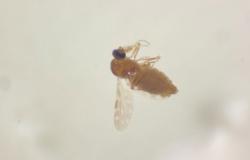Fructose is a simple sugar found in natureas well as glucose and sucrose. It is present in natural foods, such as fruits and vegetables, but also in industrialized productswhich should be a cause for concern for those who take care of their health. Excessive consumption of artificial fructose from processed and ultra-processed foods causes harm to the body.
Like other sugars, fructose provides the body with energy as it is a source of carbohydrates. She is from easy absorption and low satiety stimulus. But better than glucose.
— Incentivizing fructose should occur through the consumption of fresh fruitsince, in Brazil, the consumption of this food group is below nutritional recommendations — highlights nutritionist Thiago Barros, specialist in nutrition applied to physical exercise.
— Compared to glucose, fructose does not have such a rapid peak in blood glucose levels, as it is metabolized in the liver — highlights endocrinologist Dhiãnah Santini, coordinator of the Education and Campaigns Department of the Brazilian Diabetes Society (SBD).
When consumed, fructose is absorbed by the small intestine and transported to the liver. There, it is converted into metabolic intermediates and can be used for the synthesis of glucose, glycogen and fatty acids, among other processes.
— While glucose is readily used by the body as an energy source, fructose has a more complex metabolism.mainly in the liver, which can have different impacts on energy and lipid metabolism, especially when consumed in excess — explains the doctor.
— Once in the liver, fructose can be stored there, in the form of liver glycogen (energy store in the liver), and in the muscle (energy store in the muscle – used for training, for example) or to form glucose — he adds the nutritionist.
— When consumed in whole fruit, fructose is not a problem due to fiber that slows its absorption, preventing glucose spikes and promoting healthy digestion.. However, Excessive consumption of fructose in processed foods can overload the liver, increasing the risk of metabolic problemssuch as type 2 diabetes and fatty liver disease — warns clinical nutritionist Maria Fernanda Gonzalez.
10 low-sugar fruits
The consumption of natural fructose, coming from fresh fruits, honey and vegetables such as beets, carrots and peas, has several health benefits.. Fruits are not a problem, as long as they are consumed without exaggeration and within what is prescribed in the diet.
— Rich in fructose, fruits are also sources of vitamins, minerals and antioxidants, which play a vital role in maintaining health and preventing diseases. The fiber found in fruits can help promote the feeling of satiety, which can be useful for controlling appetite and helping to regulate body weight, as well as helping with digestive health, promoting intestinal regularity and preventing problems such as constipation — he teaches the integrative onco-hematologist Indianara Brandão.
Is fructose bad for your health?
On the other hand, Excess industrially added fructose – as well as other sugars – can contribute to a range of health problems, such as obesity, insulin resistance, increased risk of heart disease and non-alcoholic fatty liver disease (accumulation of fat in the liver).
— It is important to avoid processed foods like high fructose corn syrup.. Individuals with medical conditions such as diabetes should monitor their fructose intake – advises Dhiãnah.
— To have excess fructose, a person will generally consume ultra-processed or processed foods.such as cookies, cakes, soft drinks and snacks rich in corn syrup, and not from the consumption of bananas, for example, as the lay public imagines — explains Thiago.
Excessive consumption of fructose, particularly as corn syrup, can be especially worrying for cancer patients, warns Maria Fernanda.
— Cancer patients should be aware of the potential risks of excessive fructose consumption, especially if they have pre-existing metabolic problems, such as obesity or insulin resistance. It is essential that patients undergoing cancer treatment discuss their nutritional needs with a qualified professional – such as a nutritionist specialized in integrative oncology – to ensure a balanced diet suited to their specific needs.
Many processed foods are significant sources of added fructose, often in the form of high-fructose corn syrup or other sweeteners.. Some examples are: soft drinks, processed fruit juices, cereal bars, sweetened breakfast cereals, ready-made sauces, among others.
— It is essential that consumers pay attention to food labels and choose products with a low content of added sugars. Nowadays, this information is already written on the front of the packaging — recalls Maria Fernanda.
Dhiãnah Santini (@dra.dhianah_santini) is an endocrinologist, coordinator of the Education and Campaigns Department of the Brazilian Diabetes Society (SBD) and professor of Endocrinology at YDUQS/IDOMED. She has a master’s and doctorate in Endocrinology from the Federal University of Rio de Janeiro (UFRJ).
Indianara Brandão (@dra.indianarabrandao) is an integrative onco-hematologist, specialized in Nutrology and who works at Clínica First.
Maria Fernanda Gonzalez (@mafegonzaleznutri) is a clinical nutritionist, specialized in health, well-being and longevity, who works at Clínica First.
Thiago Barros (@thiagobarrosnutri) is a nutritionist, specialist in Nutrition Applied to Physical Exercise from the School of Physical Education and Sports at the University of São Paulo (EEFE-USP).






